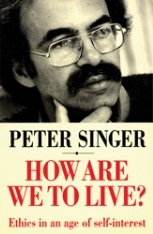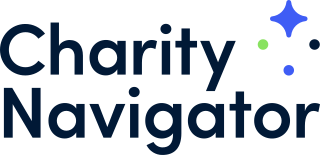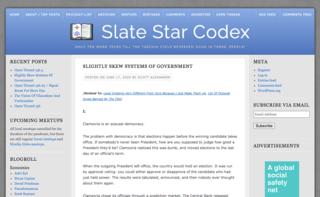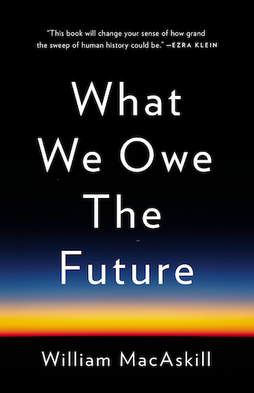
Altruism is the principle and practice of concern for the well-being and/or happiness of other humans or animals above oneself. While objects of altruistic concern vary, it is an important moral value in many cultures and religions. It may be considered a synonym of selflessness, the opposite of selfishness.

Peter Albert David Singer is an Australian moral philosopher and the Ira W. DeCamp Professor of Bioethics at Princeton University. He specialises in applied ethics, approaching the subject from a secular, utilitarian perspective. He wrote the book Animal Liberation (1975), in which he argues for vegetarianism, and the essay "Famine, Affluence, and Morality", which favours donating to help the global poor. For most of his career, he was a preference utilitarian, but he revealed in The Point of View of the Universe (2014), coauthored with Katarzyna de Lazari-Radek, that he had become a hedonistic utilitarian.

Animal Liberation: A New Ethics for Our Treatment of Animals is a 1975 book by Australian philosopher Peter Singer. It is widely considered within the animal liberation movement to be the founding philosophical statement of its ideas. Singer himself rejected the use of the theoretical framework of rights when it comes to human and nonhuman animals. Following Jeremy Bentham, Singer argued that the interests of animals should be considered because of their ability to experience suffering and that the idea of rights was not necessary in order to consider them. He popularized the term "speciesism" in the book, which had been coined by Richard D. Ryder to describe the exploitative treatment of animals.
"Famine, Affluence, and Morality" is an essay written by Peter Singer in 1971 and published in Philosophy & Public Affairs in 1972. It argues that affluent persons are morally obligated to donate far more resources to humanitarian causes than is considered normal in Western cultures. The essay was inspired by the starvation of Bangladesh Liberation War refugees, and uses their situation as an example, although Singer's argument is general in scope and not limited to the example of Bangladesh. The essay is anthologized widely as an example of Western ethical thinking.

How Are We to Live?: Ethics in an Age of Self-Interest is a 1993 book about applied ethics by moral philosopher Peter Singer. Singer argues that doing the right thing involves attending to the sufferings and preferences of other sentient beings.

Charity Navigator is a charity assessment organization that evaluates hundreds of thousands of charitable organizations based in the United States, operating as a free 501(c)(3) organization. It provides insights into a nonprofit's financial stability, adherence to best practices for both accountability and transparency, and results reporting. It is the largest and most-utilized evaluator of charities in the United States. It does not accept any advertising or donations from the organizations it evaluates.

The practice of charity, which is the voluntary provision of assistance to those in need, serves as a humanitarian act, and is unmotivated by self-interest. Various philosophies about charity exist, with frequent associations with religion.
GiveWell is an American non-profit charity assessment and effective altruism-focused organization. GiveWell focuses primarily on the cost-effectiveness of the organizations that it evaluates, rather than traditional metrics such as the percentage of the organization's budget that is spent on overhead.

The Life You Can Save: Acting Now to End World Poverty is a 2009 book by Australian philosopher Peter Singer, in which the author argues that citizens of affluent nations are behaving immorally if they do not act to end the poverty they know to exist in developing nations.
Giving What We Can (GWWC) is an effective altruism-associated organisation whose members pledge to give at least 10% of their income to effective charities. It was founded at Oxford University in 2009 by the philosopher Toby Ord, physician-in-training Bernadette Young, and fellow philosopher William MacAskill.

Toby David Godfrey Ord is an Australian philosopher. In 2009 he founded Giving What We Can, an international society whose members pledge to donate at least 10% of their income to effective charities, and is a key figure in the effective altruism movement, which promotes using reason and evidence to help the lives of others as much as possible.
Good Ventures is a private foundation and philanthropic organization in San Francisco, and the fifth largest foundation in Silicon Valley. It was co-founded by Cari Tuna, a former Wall Street Journal reporter, and her husband Dustin Moskovitz, one of the co-founders of Facebook. Good Ventures adheres to principles of Effective Altruism and aims to spend most or all of its money before Moskovitz and Tuna die. Good Ventures does not have any full-time staff, and instead distributes grants according to recommendations from Open Philanthropy.
Effective altruism is a 21st-century philosophical and social movement that advocates "using evidence and reason to figure out how to benefit others as much as possible, and taking action on that basis". People who pursue the goals of effective altruism, sometimes called effective altruists, may choose careers based on the amount of good that they expect the career to achieve or donate to charities based on the goal of maximising positive impact. They may work on the prioritization of scientific projects, entrepreneurial ventures, and policy initiatives estimated to save the most lives or reduce the most suffering.

80,000 Hours is a London-based nonprofit organisation that conducts research on which careers have the largest positive social impact and provides career advice based on that research. It provides this advice on their website and podcast, and through one-on-one advice sessions. The organisation is part of the Centre for Effective Altruism, affiliated with the Oxford Uehiro Centre for Practical Ethics. The organisation's name refers to the typical amount of time someone spends working over a lifetime.
Earning to give involves deliberately pursuing a high-earning career for the purpose of donating a significant portion of earned income, typically because of a desire to do effective altruism. Advocates of earning to give contend that maximizing the amount one can donate to charity is an important consideration for individuals when deciding what career to pursue.

William David MacAskill is a Scottish philosopher and author, as well as one of the originators of the effective altruism movement. He is an associate professor in Philosophy and Research Fellow at the Global Priorities Institute at the University of Oxford and Director of the Forethought Foundation for Global Priorities Research. He co-founded Giving What We Can, the Centre for Effective Altruism and 80,000 Hours, and is the author of Doing Good Better (2015) and What We Owe the Future (2022) and the co-author of Moral Uncertainty (2020).

Doing Good Better: Effective Altruism and How You Can Make a Difference is a 2015 book by William MacAskill that serves as a primer on the effective altruism movement that seeks to do the most good. It is published by Random House and was released on July 28, 2015.
Animal Charity Evaluators (ACE), formerly known as Effective Animal Activism (EAA), is a US-based charity evaluator and effective altruism-focused nonprofit founded in 2012. ACE evaluates animal charities and compares the effectiveness of their different campaigns and strategies. The organization makes charity recommendations to donors once a year. Its stated purpose is finding and promoting the most effective ways to help animals.

Slate Star Codex (SSC) is a blog focused on science, medicine, philosophy, politics, and futurism. The blog was written by Scott Alexander Siskind, a San Francisco Bay Area psychiatrist, under the pen name Scott Alexander.

What We Owe the Future is a 2022 book by the Scottish philosopher and ethicist William MacAskill, an associate professor in philosophy at the University of Oxford. It argues for effective altruism and the philosophy of longtermism, which MacAskill defines as "the idea that positively influencing the long-term future is a key moral priority of our time."













